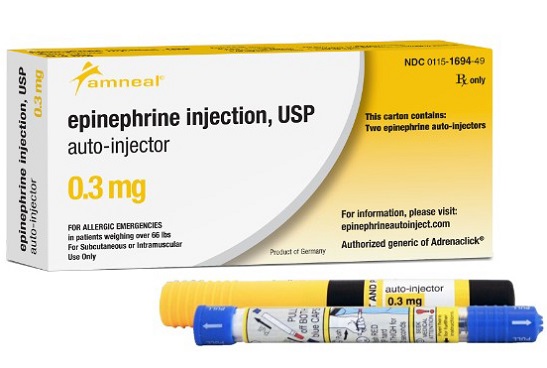Nikhil Prasad Fact checked by:Thailand Medical News Team Jun 11, 2024 10 months, 2 weeks, 1 day, 22 hours, 36 minutes ago
Cardiology Updates: A New Approach to Cardiac Arrest Treatment
In a groundbreaking study, researchers from the University of Utah School of Medicine and The Ohio State University have found that early administration of intramuscular (IM) adrenaline significantly improves survival rates for out-of-hospital cardiac arrest (OHCA) patients. This innovative approach could revolutionize emergency medical services (EMS) protocols and save countless lives and is covered in this
Cardiology Updates news report.
 Early Adrenaline Boosts Survival Rates for Cardiac Arrest Patients
Early Adrenaline Boosts Survival Rates for Cardiac Arrest Patients
The Problem with Traditional Adrenaline Administration
Cardiac arrest is a critical condition where every second counts. Adrenaline, a key drug in resuscitation efforts, is traditionally administered intravenously (IV) or intraosseously (IO). However, these methods often face delays due to the time required to establish vascular access, potentially compromising patient outcomes. Studies have shown that it can take 4-7 minutes to secure vascular access, with success rates as low as 43% for IV and 51% for IO routes.
Study Design and Methods
To address these delays, the Salt Lake City Fire Department, in collaboration with researchers, implemented a new EMS protocol. Between January 2010 and May 2024, they conducted a before-and-after study comparing the effects of early IM adrenaline administration to the standard IV/IO method.
The study involved 1,450 adult patients who experienced non-traumatic OHCA. The participants were divided into two groups: those who received an initial dose of IM adrenaline (372 patients) and those who received traditional care with IV/IO adrenaline (985 patients).
Faster Administration and Improved Outcomes
The results were striking. Patients in the IM adrenaline group received their first dose much faster, with a median time of 4.3 minutes compared to 7.8 minutes for the traditional care group. This rapid administration had a significant impact on survival rates and neurological outcomes.
-Survival to Hospital Admission: 37.1% in the IM group vs. 31.6% in the traditional care group.
-Survival to Hospital Discharge: 11.0% in the IM group vs. 7.0% in the traditional care group.
-Favorable Neurologic Status at Discharge: 9.8% in the IM group vs. 6.2% in the traditional care group.
Implications for Emergency Medical Services
These findings suggest that early IM adrenaline administration could be a game-changer in the treatment of cardiac arrest. The Salt Lake City Fire Department's protocol change in 2019 to administer a single 5 mg dose of IM adrenaline concurrently with attempts to establish vascular access has shown promising results.
Given that delays in adrenaline administration can critically impact patient outcomes, this new method offers a quicker and potenti
ally more effective way to deliver life-saving treatment. The IM route, well-established in treating anaphylaxis, provides a rapid and reliable alternative to IV and IO methods.
Call for Further Research
While this study provides compelling evidence for the benefits of early IM adrenaline, the researchers emphasize the need for randomized controlled trials to confirm these findings. Such trials would help to fully assess the potential advantages and establish IM adrenaline as a standard practice in cardiac arrest protocols.
Conclusion: A Promising Future for Cardiac Arrest Treatment
In conclusion, the study by Palatinus et al. highlights the significant impact of early IM adrenaline administration on survival rates and neurological outcomes for OHCA patients. This innovative approach addresses the critical issue of delays in traditional adrenaline delivery methods, offering a faster and potentially more effective solution.
As emergency medical services continue to evolve, adopting such evidence-based practices could lead to improved patient outcomes and save more lives. The call for further research underscores the importance of continued innovation and validation in the field of emergency medicine.
The study findings were published in the peer reviewed journal: Resuscitation
For the latest
Cardiology Updates, keep on logging to Thailand Medical News.
Read Also:
https://www.thailandmedical.news/news/breaking-medical-news-study-reveals-heightened-risk-of-sudden-cardiac-arrest-in-type-2-diabetes-patients-taking-commonly-prescribed-medications
https://www.thailandmedical.news/news/covid-19-news-japanese-pediatricians-warn-new-sars-cov-2-variants-in-circulation-are-causing-increased-disease-severity-in-children-including-cardiac-
https://www.thailandmedical.news/news/covid-19-research-swedish-study-shows-that-covid-19-patients-have-higher-mortality-from-sudden-cardiac-arrest
